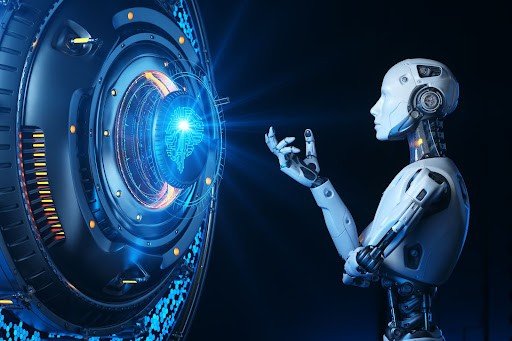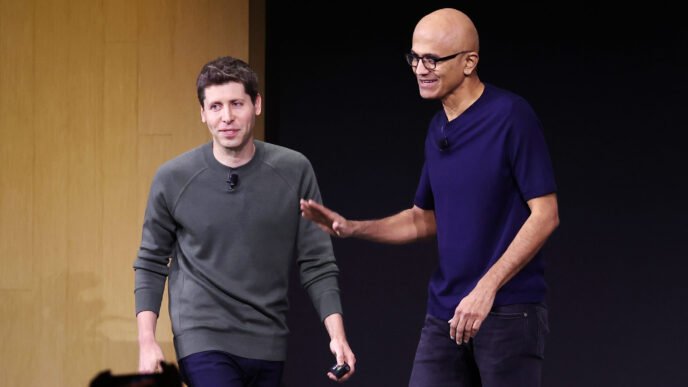The Paris AI Summit 2025 brought together global leaders, tech innovators, policymakers, and academics to discuss the rapid advancements in artificial intelligence and their implications for society. As one of the most anticipated events of the year, it highlighted both opportunities and challenges posed by AI. Below are the key takeaways that emerged from this landmark summit:
1. No One Wants to Regulate AI – But Everyone Agrees It’s Necessary
One of the recurring themes at the summit was the reluctance to impose strict regulations on AI development. Many stakeholders argued that over-regulation could stifle innovation, particularly in industries where AI has transformative potential, such as healthcare, education, and climate solutions.
However, there was also a consensus that some form of regulation is inevitable. Unchecked AI poses significant risks, including ethical concerns, misinformation, and even existential threats. While no single framework has been universally adopted, participants emphasized the need for collaborative efforts between governments, private companies, and civil society to establish guidelines that balance safety with progress.
Key Insight: The challenge lies not in whether to regulate but in how to do so effectively without hindering innovation.
2. Political Divisions Threaten Global AI Collaboration
Political tensions loomed large over discussions about international cooperation on AI. With major powers like the United States, China, and Russia pursuing their own AI agendas, there is growing concern that geopolitical rivalries could fragment global standards and lead to an “AI arms race.”
Several speakers warned that these divisions might result in incompatible systems, data silos, and uneven access to AI technologies across nations. Developing countries, in particular, risk being left behind if wealthier nations prioritize their domestic interests over global equity.
Despite these challenges, some optimistic voices called for diplomacy and multilateral agreements to ensure AI benefits humanity as a whole. Bridging political divides will be crucial for fostering trust and collaboration in the years ahead.
Key Insight: Geopolitical fragmentation threatens the equitable and safe deployment of AI worldwide.
3. EU Joins the AI Race with Ambitious Goals
In a bold move signaling its commitment to becoming a leader in ethical AI, the European Union announced several initiatives aimed at accelerating AI research while upholding stringent ethical standards. These include increased funding for AI startups, partnerships with academic institutions, and the rollout of comprehensive AI training programs.
The EU’s approach contrasts sharply with other regions, focusing heavily on transparency, accountability, and human-centric design. By positioning itself as a champion of “responsible AI,” the bloc hopes to set an example for the rest of the world.
Critics, however, question whether the EU can keep pace with technological giants like the U.S. and China, whose massive investments give them a competitive edge. Nevertheless, the EU’s entry into the AI race underscores the importance of diverse perspectives in shaping the future of this technology.
Key Insight: The EU’s emphasis on ethics and regulation could redefine global AI leadership.
4. No Roadmap for Jobs in an AI-Driven Economy
Perhaps the most pressing issue discussed at the summit was the impact of AI on employment. Despite widespread acknowledgment of AI’s potential to disrupt labor markets, there remains no clear roadmap for addressing job displacement or preparing workers for an AI-driven economy.
Speakers pointed out that automation could render millions of jobs obsolete, particularly in manufacturing, customer service, and administrative roles. At the same time, new opportunities may arise in fields related to AI development, maintenance, and oversight. However, the transition will require significant investment in reskilling and upskilling programs—a task many governments and organizations seem unprepared for.
Some experts suggested implementing universal basic income (UBI) or similar social safety nets to mitigate economic inequality caused by AI. Others advocated for stronger public-private partnerships to create pathways for displaced workers. Regardless of the solution, the lack of a cohesive strategy remains a glaring gap.
Key Insight: Without proactive measures, the workforce risks being ill-equipped to thrive in an AI-dominated future.
Looking Ahead: A Call to Action
The Paris AI Summit 2025 served as a wake-up call for the global community. While AI holds immense promise, its unchecked proliferation carries profound risks. To harness its full potential, we must address critical questions around regulation, geopolitics, ethics, and workforce adaptation.
As attendees departed, one message rang loud and clear: the decisions we make today will shape the trajectory of AI—and, by extension, humanity—for decades to come. Whether we rise to meet these challenges or succumb to division and complacency depends on our collective will to act responsibly and collaboratively.












